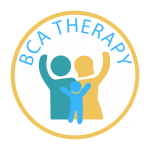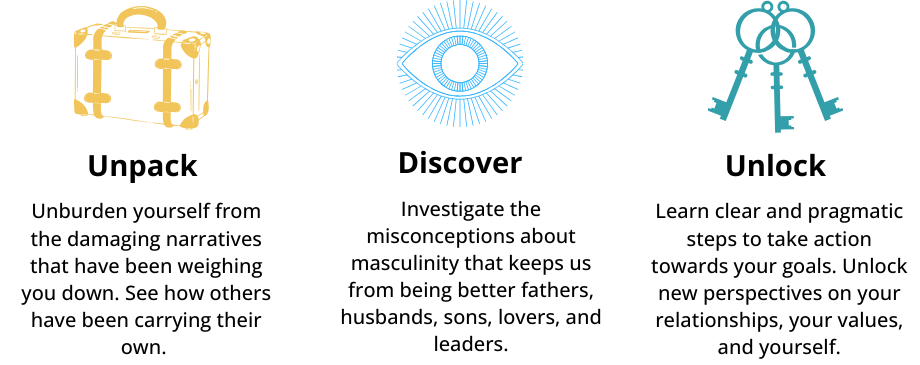Brynn Cicippio contributes to Philly Mag article on Sobriety
Brynn Cicippio shares her experience on sobriety and the influence of alcohol on our current culture.
https://www.phillymag.com/be-well-philly/2022/03/26/mindful-drinking-philadelphia/
Learn More
Brynn Cicippio in Philly Magazine: Strategies for taking care of your mental and emotional health
BCA Founder Brynn Cicippio shares specific coping skills to support your mental and emotional health.
10 Mental Health Tips for When Life Feels Out of Your Control (phillymag.com
Learn MoreEmotional Literacy
Emotional Literacy – Let’s Get Started!
Emotional Literacy: “Intelligence with a Heart”. Learn what the definition is of emotional literacy along with some supportive resources to get started.
Emotional Literacy resource links can be found HERE:
“I still don’t understand… what is it?”
“I’m not sure how to get started.”
To learn more, stay tuned for a story book adaptation make especially for children. If you’re ready for therapy, we are always here to help!
Learn MoreBucks County Mental Health Resource
BCA Therapy is a Bucks County Mental Health Resource and a 2024, 2025 Bucks County Parent LOVE Award winner. We strive to support all members of our Bucks County community and provide them with an immediate connection and the highest quality of care.
BCA Therapy never has a waitlist and immediate help is always available. Complete an online form and our client care coordinator will be in touch in less than 24 hours, matching you with the best fit therapist. When you are ready, there will be no barriers to your care with BCA Therapy.

Bucks County Mental Health Resource and Bucks County Parent LOVE Award winner
Mindfulness: Clarity in a Chaotic World
Mindfulness
By Veronica Jeffers, LAPC, MS, NCC
Mindfulness offers us a powerful tool to counteract the chaos, reclaim our attention, and cultivate a sense of peace. In today’s fast-paced environment, many of us find ourselves rushing through life, overwhelmed with stress and distraction. We may find ourselves racing out the door in the morning, pressured with deadlines and to-do lists, multitasking to make sure we accomplish all that is needed of us by the end of the day. And then the end of the day comes, and we realize we haven’t truly engaged with those around us, the fleeting moments of our day have slipped by unnoticed, and we find ourselves in this constant battle of disconnection. It can be challenging to slow down, to take in each moment, and truly be present in the world around us.
What is Mindfulness?
At its core, mindfulness is the practice of being fully present and engaged in the moment, without judgement. It involves observing one’s thoughts, feelings, and bodily sensations, as well as the surrounding environment with curiosity and acceptance. The goal is to focus on our experiences with compassion.
Mindfulness –
- Enhances self-awareness and emotional regulation
- Reduces stress and anxiety
- Helps slow down our nervous system
- Deepens understanding of our thoughts, feelings, and sensations
Mindfulness does not require extensive training or lengthy meditation sessions; it simply requires a willingness to slow down and observe the world around you.
Mindfulness: Clarity in a Chaotic World
Simple Ways to Utilize Mindfulness and Find Clarity in a Chaotic World
A rainbow walk involves intentionally observing and noticing colors during your walk. Pick one color from the rainbow, such as red, and try to find as many red things as you can during your walk. For instance, a stop sign, a red flower, a fire hydrant, your neighbor’s mailbox, etc. You can also choose to find one item for each color of the rainbow on your walk. This is a simple way to incorporate movement and mindfulness while getting out into nature.
Daily gratitude journaling involves writing down three things you are grateful for each day. Focus on the details and emotions associated with each, allowing yourself to fully appreciate them. For instance, if you are grateful for your spouse, try to identify one something specific about your interaction with them that day, how it made you feel, and how it impacted your day. You can use a physical journal, a scrap piece of paper, the notes app in your phone, or take a mental note. I recommend to do this at the end of each day, to allow space and time to reflect.
Mindful mini-breaks involve taking a pause at work to breathe, stretch, and reset.
Step 1: Look up from your work – take a few deep breaths
Step 2: Do a quick body scan – start at the top of your body and shift your focus down to your toes, taking a few moments to notice areas of tension, stress, and discomfort (i.e., neck, shoulders, etc.)
Step 3: Listen to your body and give it what it needs – fix your posture, uncross your legs, wiggle your toes, stand up, stretch, take a sip of water, eat a snack, etc.
These simple, basic tasks often get overlooked when we are busy at work. Taking a moment to be mindful of your body and giving yourself a mini-break can make a big difference.
Incorporating mindfulness into your daily routine doesn’t have to be complex or time consuming. It can be as simple as eating mindfully and noticing the taste and texture of the food or sitting in a coffee shop and noticing the people around you, the sounds, and the smells. By dedicating just a few moments each day to being present, whether through simple practices or structured exercises, you can foster a greater sense of peace.
If you are interested in learning more about mindfulness or want to dive deeper to see how mindfulness relates to you and your goals, Veronica works directly with clients to identify and tailor specific mindfulness techniques and practices that will best support them.

simple tools for daily mindfulness
3 Ways Men Benefit from Therapy
Three easy reasons why men should be in therapy.
–Steven Rishard, MS, LAPC
BCA Therapist APRIL, 2025
#1. Live longer.
#2. More ease.
#3. Greater personal satisfaction.

3 ways men benefit from therapy
LIVE LONGER.
No, really, I mean it. The stigmas that keep many men from seeking help
are driving them into the grave at at faster rate. There is enough evidence from the last
ten years of studies to suggest that some of the reasons men’s lifespans are shorter are
- due to a lack of connected relationships
- less attention to stress management
- not enough time spent on mental health.
We need more people around us as we get older,
and men with a greater number of connected relationships have more people looking
out for their well being, sharing in their ups and downs, and giving them a greater
sense of community. Men who attend to their inner turmoil, ( anger, anxiety, sadness,
etc. ) are more likely to have better health benefits
- lower blood pressure
- less risk of cardiovascular disease.
We live longer with a nervous system that is
cared for as opposed to ignored. Though therapy can occasionally be tough, it is
always a great way to learn to care for yourself.
MORE EASE.
Most of us do not grow up with a ready made bag of tactics for stress
management and/or tools for great communication, nor do most of us develop sure fire
ways to manage our expectations for our lives, but the way most men are raised in our
western culture leaves them at a greater disadvantage. Being in any relationship has
it’s challenges, be it with a spouse, a sibling, a parent, co-worker, or a child.
Men who actively learn better ways to communicate and manage stress find their relationships
more enjoyable and fruitful. Not to mention what it can do for the daily tasks of living.
Responsibilities and pressures mount, but they do not have to rule the day. Life should
feel less like punching at the ocean, and a little more like adapting to the ebb and flow
of the changes.
Therapy is great for learning how to do this, and more.
GREATER PERSONAL SATISFACTION.
Socrate’s gave us a great quote in “The unexamined
life is not worth living.”
Our world moves much faster and louder than his, still taking
the time and effort to reflect on your life is always worth it. Many men are trying to
engage with their lives within a set of values and beliefs they have had no time to stop
and examine.
All men have been affected by the idea of an “ideal” man. Mythologies
and legacies of “manhood” pervade every culture and family. Without examination,
without occasional reflection and reorganization of our perspectives, men can easily
loose sight of what might bring them more enjoyment, fulfillment, and meaning.
Often when this happens men can be left with a sense of shame, of not “measuring up”.
Simply sitting with someone who’s task it is to help you sort through it all, can be of
great benefit.
If you are looking for support and would like to experience some of these benefits, we are here to help.
Learn More
New Year Men’s Circle
Explore in fellowship the deeper questions
Join us for the New Year Men’s Group, commencing on January 15th, 2025! Over the course of eight sessions, we will explore profound questions within a supportive community. Together, we will address the burdens of harmful narratives, uncover the truths surrounding masculinity, and identify actionable steps towards personal growth. Let this be the year you transform your relationships and redefine your values.
We encourage you to register soon to secure your spot!
Eligibility: Participants must be 21 years or older.
Location:
BCA Therapy
994 Old Eagle School Road, Suite 1000
Wayne, PA 19087
(Office 1 or the Conference Room – to be determined)
For further information or to register, please contact us at hello@bcatherapy.com or call 610-255-7180.
We look forward to welcoming you!
Learn More

